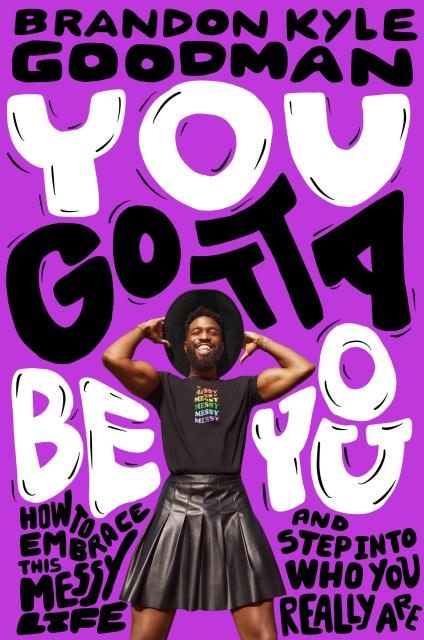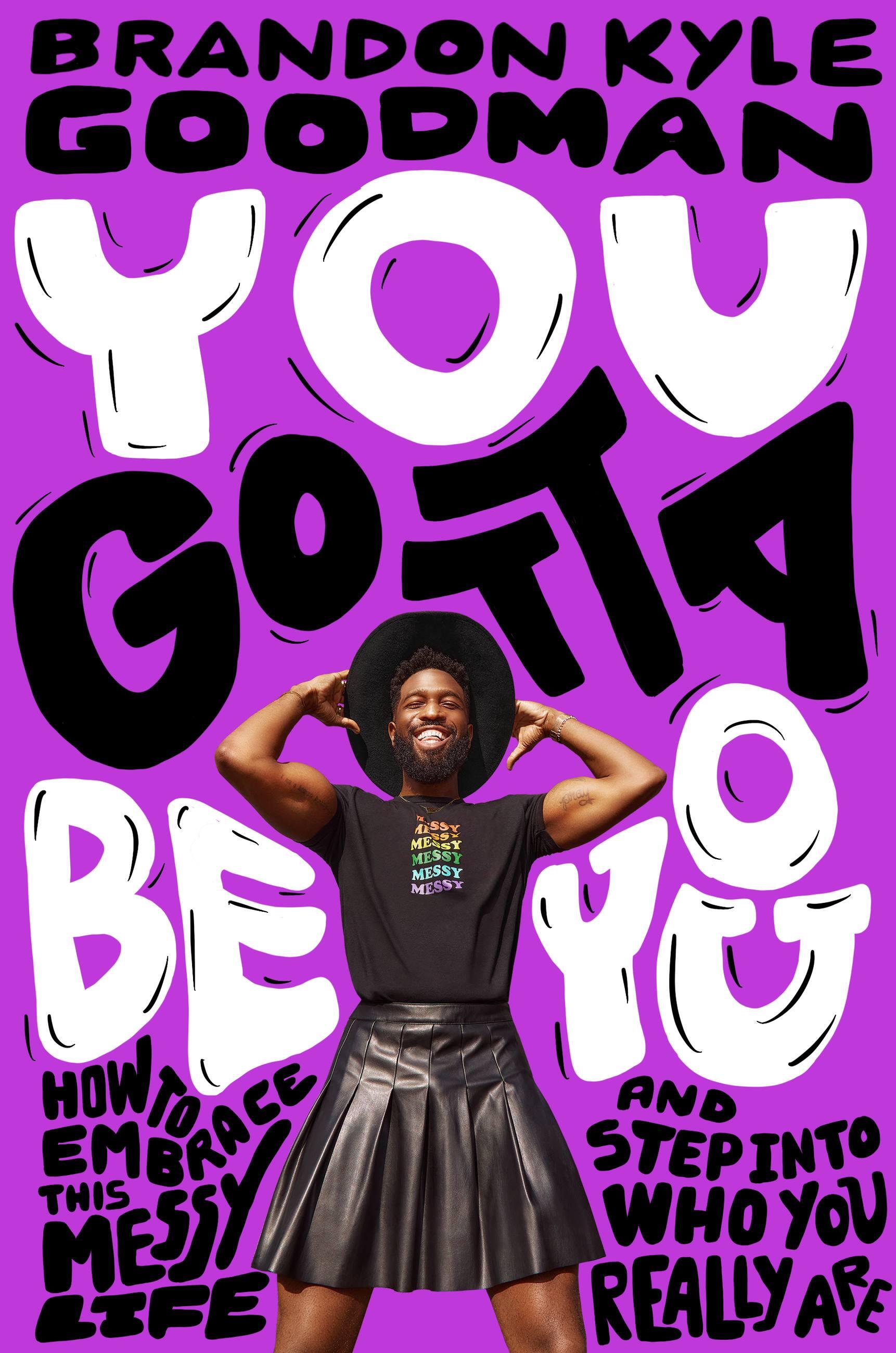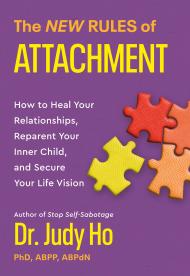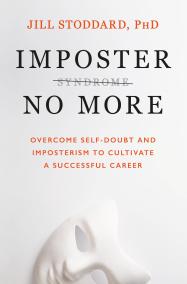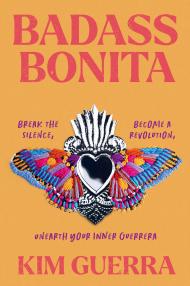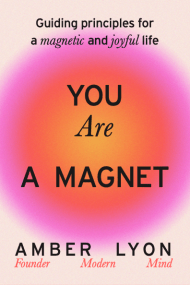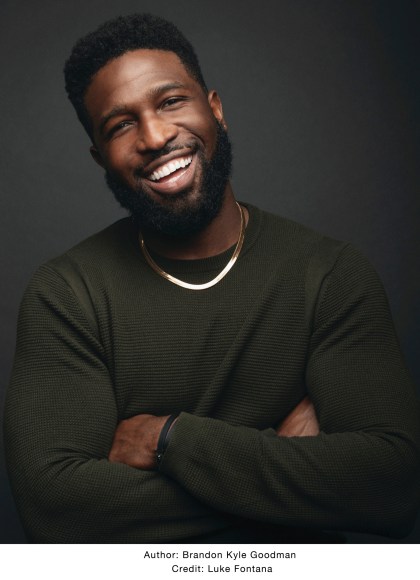By clicking “Accept,” you agree to the use of cookies and similar technologies on your device as set forth in our Cookie Policy and our Privacy Policy. Please note that certain cookies are essential for this website to function properly and do not require user consent to be deployed.
You Gotta Be You
How to Embrace This Messy Life and Step Into Who You Really Are
Contributors
Formats and Prices
- On Sale
- Sep 27, 2022
- Page Count
- 208 pages
- Publisher
- Legacy Lit
- ISBN-13
- 9780306826221
Price
$15.99Price
$20.99 CADFormat
Format:
- ebook $15.99 $20.99 CAD
- Hardcover $29.00 $37.00 CAD
- Audiobook Download (Unabridged) $24.99
- Trade Paperback $17.99 $22.99 CAD
This item is a preorder. Your payment method will be charged immediately, and the product is expected to ship on or around September 27, 2022. This date is subject to change due to shipping delays beyond our control.
Buy from Other Retailers:
Audible's Best of the Year in Well-Being
YOU ARE ENOUGH EXACTLY AS YOU ARE.
From the time we’re born, a litany of do’s and don’ts are placed on us by our families, our communities, and society. We’re required to fit into boxes based on our race, gender, sexuality, and other parts of our identities, being told by others how we should behave, who we should date, or what we should be interested in. For so many of us, those boxes begin to feel like shackles when we realize they don’t fit our unique shape, yet we keep trying because we crave acceptance and validation. But is “fitting in” worth the time, energy, and suffering? Actor, writer, and activist Brandon Kyle Goodman says, Hell no it ain’t!
As a Black nonbinary, queer person in a dark-skinned 6’1”, 180-pound male body born into a religious immigrant household, Brandon knows the pain of having to hide one’s true self, the work of learning to love that true self, and the freedom of finally being your true self.
In You Gotta Be You, Brandon affectionately challenges you to consider, “Who would I be if society never got its hands on me?” This question set Brandon on a mission to dropkick societal shackles by unlearning all the things he was told he should be in order to step into who he really is. It required him to reexamine messy but ultimately defining moments in his life—his first time being followed in a store, navigating his mother’s born-again Christianity, and regretfully using soap as lube (yes, you read that right!)—to find the lessons that would guide him to his most authentic self.
Compassionate and soulful, funny and revealing, You Gotta Be You is an unapologetic call to self-freedom. It’s about turning rejection (from others and yourself) into a roadmap to self-love. It’s a guide to setting boundaries and fostering self-growth. And most importantly, it’s an affirmation that we are enough exactly as we are.
YOU ARE ENOUGH EXACTLY AS YOU ARE.
From the time we’re born, a litany of do’s and don’ts are placed on us by our families, our communities, and society. We’re required to fit into boxes based on our race, gender, sexuality, and other parts of our identities, being told by others how we should behave, who we should date, or what we should be interested in. For so many of us, those boxes begin to feel like shackles when we realize they don’t fit our unique shape, yet we keep trying because we crave acceptance and validation. But is “fitting in” worth the time, energy, and suffering? Actor, writer, and activist Brandon Kyle Goodman says, Hell no it ain’t!
As a Black nonbinary, queer person in a dark-skinned 6’1”, 180-pound male body born into a religious immigrant household, Brandon knows the pain of having to hide one’s true self, the work of learning to love that true self, and the freedom of finally being your true self.
In You Gotta Be You, Brandon affectionately challenges you to consider, “Who would I be if society never got its hands on me?” This question set Brandon on a mission to dropkick societal shackles by unlearning all the things he was told he should be in order to step into who he really is. It required him to reexamine messy but ultimately defining moments in his life—his first time being followed in a store, navigating his mother’s born-again Christianity, and regretfully using soap as lube (yes, you read that right!)—to find the lessons that would guide him to his most authentic self.
Compassionate and soulful, funny and revealing, You Gotta Be You is an unapologetic call to self-freedom. It’s about turning rejection (from others and yourself) into a roadmap to self-love. It’s a guide to setting boundaries and fostering self-growth. And most importantly, it’s an affirmation that we are enough exactly as we are.
-
Author and narrator Brandon Goodman brings their thoughtful and joyful performance to an audiobook that explores what we might have become without the destructive messages given to us while growing up. . .With an actor’s ability to perform and the emotions lingering from lived experience, Goodman makes listeners laugh and cry in equal measure. They share important lessons, and their powerful performance makes this audiobook resonate long after it ends.Audiofile
-
“This book is moving, heartfelt, incisive, and bitingly funny. This isn’t just a beautiful read, it’s also an invitation to live better, messier, and more truthfully. I loved it!”Amber Ruffin, host of The Amber Ruffin Show and New York Times bestselling author of You’ll Never Believe What Happened to Lacey
-
“You Gotta Be You is a love letter to anyone that reads it, but it’s also a call to action. It’s a book that challenges you to stop being who everyone wants you to be and start being who you are. Even if that person is messy - and after you read Brandon’s new definition of “messy”–you’ll realize there’s nothing to be ashamed of. It’s a must read for anyone that marches to beat of their own drum, and let’s be honest… that’s all of us.”Lena Waithe
-
“This book is a masterpiece of stories and one of the most entertaining and encouraging books I've ever read. By the end, you’ll feel great about you.”Karamo Brown, co-host of Queer Eye and author of Karamo
-
"Brandon's voice will empower you to the very core. After reading this refreshingly conversational and honest book, it’s impossible not to share his infectious lust for life and passion for both self-acceptance and self-love. Brandon reminds us we’re always on our path of becoming. Reading this will make you feel braver, brighter and bolder along your journey. I know I did!"Lily Collins, actress and author of Unfiltered
-
“There are very few individuals on this planet who are as talented as Brandon Kyle Goodman. He is truly one of the most creative, funny, beautiful people and I loved this book.”Taylor Tomlinson
-
"Had I had access to the testimonies and musings found on every page of You Gotta Be You when I was coming of age, I may have spent more days loving myself. Brandon Kyle Goodman's words are a reminder of the power of Black queer self-determination. You Gotta Be You is a mediation on Black queer life that is full of the sharp wit, singular humor and courageous candor that has come to define its author. Someone's life will be transformed because of Goodman's gift."Darnell L. Moore, author of No Ashes in the Fire
-
“Brandon is such a beautiful example of the joy one can have when you truly embrace who you are, and that joy is contagious! The world is a brighter (& funnier) place because of their work and shows other folks that the most beautiful gift they can give to the world is to be themselves.”Tess Holiday, author of The Not So Subtle Art of Being a Fat Girl
-
“Brandon is a force of nature: funny, honest, messy and real. You Gotta Be You showcases a level of introspection it takes most people a lifetime to achieve. There’s a lesson in these pages for everyone.”Nick Kroll
-
“A graceful, heartening story of Brandon's journey toward finding himself. I felt like he was holding my hand the whole way through. You Gotta Be You is a visceral cue to cherish those who nurture your soul, and a reminder to ‘borrow their eyes’ in an attempt to ‘see yourself the way they see you.’”Colton Haynes, author of Miss Memory Lane
-
“In You Gotta Be You Brandon Kyle Goodman beautifully chronicles the way they’ve whittled away at a hunk of metal to create a skeleton key for themselves—a key to unlock their most honest self, a key to free themselves from society’s oppressive expectations, a key to be themselves. Reading this book will inspire you to take a chisel to your own hunk of metal. It will dare you to see what you might unlock in yourself.”Dylan Marron, author of Conversations with People Who Hate Me
-
"bell hooks once wrote that our society has no places where we can go to learn how to love. Brandon Kyle Goodman's You Gotta Be You answers her call. This work is a laboratory of love: an essential companion for our journeys toward self-actualization. With practical lessons, trenchant political critique, generosity, wit, and panache, Goodman is a lighthouse for those struggling to find themselves (read: everyone). Their knack for holding multiple truths is honest and refreshing: this book is both self-help and collective responsibility, both mental health and macro politics, and all love."Alok Vaid-Menon, author of Beyond the Gender Binary
Newsletter Signup
By clicking ‘Sign Up,’ I acknowledge that I have read and agree to Hachette Book Group’s Privacy Policy and Terms of Use
